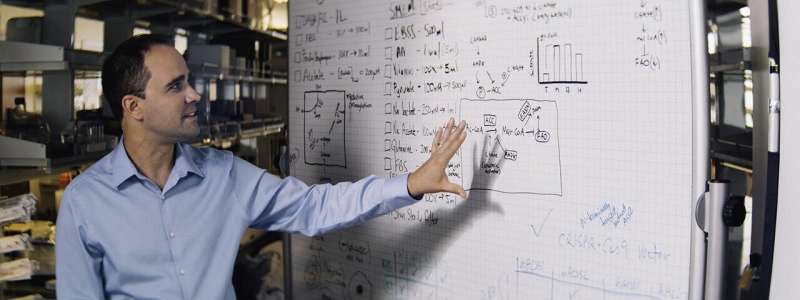Alternative cancer cell fuel source targeted as therapeutic approach for breast cancer

Scientists at The Wistar Institute characterized an inhibitor that targets acetate metabolism in cancer cells. Cancer cells use acetate metabolism to support tumor growth in conditions of low nutrient and oxygen availability. This molecule caused tumor growth inhibition and regression in preclinical studies, demonstrating the promise of this approach as a novel therapeutic strategy for solid tumors. Study results were published today in Cancer Research, a journal of the American Association for Cancer Research.
Highly proliferating cancer cells within a tumor often experience severe oxygen and nutrient deprivation. Over time, to satisfy their large metabolic demands for energy generation and synthesis of macromolecules, cancer cells adapt and evolve to survive and continue growing using different nutrient sources. The changes that accompany this metabolic rewiring represent a critical barrier to cancer treatment.
The laboratory of Zachary T. Schug, Ph.D., assistant professor in the Molecular & Cellular Oncogenesis Program at The Wistar Institute Cancer Center, studies the metabolic changes that arise during tumor progression to identify targets that can be exploited for new effective cancer treatments.
In particular, they focus on the role of acetate metabolism. They and others have identified acetate as an important alternative nutrient source for cancer cells and discovered that the ACSS2 enzyme, which converts acetate into acetyl-CoA, is crucial for tumor growth under nutrient stress conditions. Acetyl-CoA is an essential metabolite used by cancer cells for many fundamental cellular processes and to generate energy.
“We wanted to verify whether pharmacological inhibition of ACSS2 could prevent tumor growth and offer a significant therapeutic opportunity for cancers that rely on acetate for fuel,” said Schug, who is the lead author of the study.
In a collaboration with Joseph Salvino, Ph.D., professor in The Wistar Institute Cancer Center and a medicinal chemistry expert, Schug and colleagues synthesized and tested an inhibitor of the ACSS2 enzyme and showed that this molecule, called VY-3-135, is potent and highly specific in blocking the function of ACSS2 in breast cancer cell lines. Importantly, VY-3-135 treatment was able to inhibit acetate metabolism in tumors in vivo and caused marked inhibition of tumor growth in preclinical breast cancer models with high ACSS2 levels.
“Multiple studies have now shown that ACSS2 is essential in a wide variety of cancers, suggesting that acetate metabolism plays a near universal role in cancer and supports the promise of ACSS2 inhibitors for cancer treatment,” said Katelyn D. Miller, Ph.D., postdoctoral fellow in the Schug lab and first author of the study.
Source: Read Full Article
